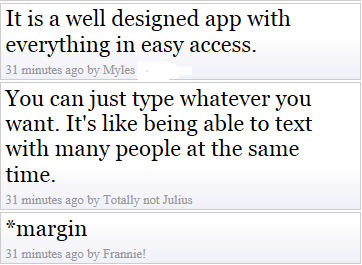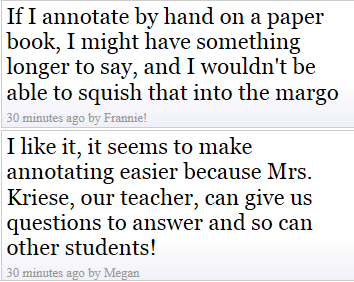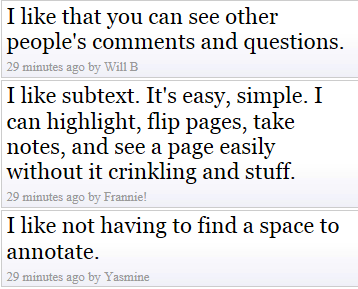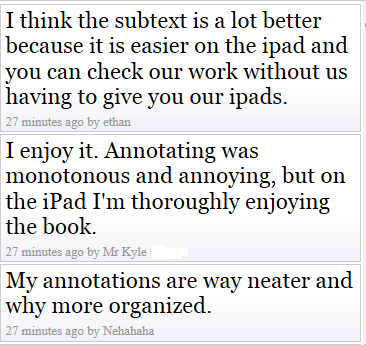In our study of mentor texts (most recently, the prologue to Michael Crichton’s Jurassic Park, the thirty-fourth chapter of J.K. Rowling’s Harry Potter and the Deathly Hallows, and James Ramsey Ullman’s “A Boy and a Man” from our Prentice-Hall literature textbook), we’ve paid attention to how the authors have used punctuation to bring out the emotion of what is happening on the page. Hyphenated adjectives can add voice, dashes can add a sense of immediacy and urgency, colons can add dramatic emphasis, and ellipses can show hesitation or doubt. Of course, these aren’t the only uses for these punctuation marks. We’ve been playing with them in our writing over the past few weeks to see what more they can do for us.
Here are examples from student work that I collected in my classroom about six or seven years ago. These sentences were all taken from personal narratives written in response to the prompt “write about a moment you’ll always remember.”
Hyphenated Adjective
We weren’t just scared. We were scared-out-of-our-wits scared. —Shelby
We didn’t call our full-court, man-to-man, get-the-ball defense “Duracell” for nothing. In our last game alone, we had created fifteen turnovers. —Ryan
Dash
I was having the time of my life. Something was bound to happen—something bad. –Jesse
Confused, I glanced at the clock. It was only—wait—that couldn’t be! Nine o’clock?!! –Annie
There were no birds singing, no plants swaying, no clouds moving—another breathless day. –Carly
Every minute—every second—was precious to me, because every instant we weren’t there was a moment he might die. I don’t remember whether or not I cried. It wasn’t important. What was important was how much I needed him—how much I would miss him—how much I loved him. –Hetty
I was trapped. The towering oak which had once captured my imagination now held me prisoner in my own treehouse. I yelled for my mom, for my dog—for anyone! –Jaci
Colon
It was World War III: older brother vs. younger sister. There were pillows, books, even food being thrown. Soon we were throwing ourselves at each other! — Myles
I knew something then: this dog needed me, and I needed him too. –Emmi
It was only later that I realized what I had accomplished: not only had I broken my own record, but I had broken the all-time record! — Katy
Victory was mine: I had decimated his army and captured his king in the most strategic and graceful game of chess I’d ever played. — Clifton
Ellipsis
I felt strange…not good, not bad. Only one thing was certain: I had to make the best out of a sad situation—new house, new room, new things. –Mary
“Ummm…sure…I’ll do it,” I finally answered. Oh my God, I thought…What did I just do? — Jessie
“Hi, I…I’m Je…Jessica.” My lips were paralyzed and my heart was pounding furiously. Three hundred pairs of eyes were staring up at me, watching my every move. –Jessica
Students, use the comments to post examples of punctuation craft from your recent essays or blog posts.








